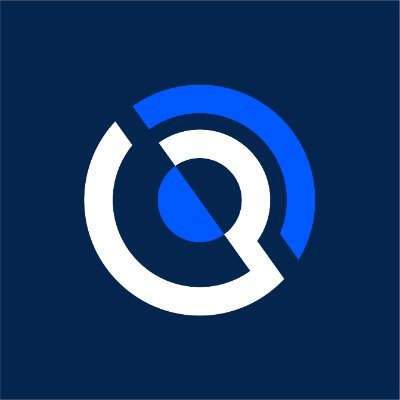美国银行因“去银行化”而陷入困境

银行、关税、特朗普和埃隆·马斯克将年度奖杯带回家。 2024 年即将结束,距离唐纳德·特朗普dent美国总统只剩下 20 天了。他对美国人民最大的承诺之一就是改善国家经济,而他的目标正是银行业,而银行业恰好是被称为“去银行化”的争议的中心。
奈杰尔·法拉奇 (Nigel Farage) 谈论英国银行业去银行化一年多后,美国的争论正在升温。包括风险投资家马克·安德森(Marc Andreessen)和科技巨头埃隆·马斯克(Elon Musk)在内的大众声音对个人和企业失去进入银行系统的机会表示担忧,据称是由于政治派别或与加密货币的联系。
Netscape 联合创始人兼颇具影响力的投资者马克·安德森 (Marc Andreessen) 在 11 月底接受播客主持人乔·罗根 (Joe Rogan) 采访时强调了这个问题。安德森声称,银行针对的是政治右翼人士,给他们贴上“政治暴露”的标签,并切断金融联系。
他进一步声称,在拜登政府的压力下,银行一直在matic地关闭与加密货币相关业务相关的账户。
美国银行与加密货币的紧张关系:呼声越来越高
安德森表示:“在过去的四年里,我认识了 30 位科技公司的创始人,他们的银行账户都被破产了。”这引发了社交媒体用户报道类似经历的一波轶事。他的言论火上浇油,引发了有关银行业务政治化的广泛讨论。
埃隆·马斯克 (Elon Musk) 通过 X 发表了对此事的看法,称取消银行业务是政府过度扩张的一个例子。马斯克认为,出于政治动机的账户关闭应被视为联邦犯罪。
将此视频转发给亲朋好友,了解政府到底有多邪恶
pic.twitter.com/XgRnikMK6J— Kekius Maximus (@elonmusk) 2024 年 11 月 29 日
Meanwhile, Melania Trump’s claims that her bank terminated her account in the wake of the January 6 Capitol attack have further energized critics to amplify their claims. Reports that her son Barron was also denied a bank account have added to the financial bias “allegations.”
On the political right, these actions have been collectively dubbed “Operation Choke Point 2.0,” referencing an Obama-era initiative that sought to limit banking access for controversial industries such as payday lending.
David Sacks, the incoming AI and cryptocurrency czar for the Trump administration, has vowed to examine the issue. He gave his sentiments on the matter, saying, “There are too many stories of people being hurt by Operation Choke Point 2.0.”
Is there something like too much bureaucracy?
Critics of debanking argue that bureaucratic hurdles and regulatory pressures are driving banks to sever ties with certain clients. Since the financial crisis of 2008, banks have faced thousands of pages of new regulations and billions of dollars in fines, leading to a more risk-averse approach.
When banks terminate client relationships, the reasoning is often vague, fueling speculation that they are making politically motivated decisions.
Regulators, including the Federal Deposit Insurance Corporation (FDIC), insist that they do not direct banks to drop specific customers. However, in 2022, the FDIC advised banks to inform them of any plans to engage with cryptocurrency businesses, which begs the question of whether account closures are a matter of choice or coincidence.
Edward Fishman, a former State Department official and author of Chokepoints: American Power in the Age of Economic Warfare, stated, “With crypto becoming more intertwined with the formal financial system and banking sector, banks are petrified of running afoul of sanctions.”
AI and crypto adoption growth is slow: Is Biden responsible?
The debanking debate is just one aspect of broader concerns about government overreach. Critics of the Biden administration argue that its actions have stifled emerging technologies, including artificial intelligence (AI) and cryptocurrency, by exploiting regulatory chokepoints.
Marc Andreessen revealed that he was warned against funding AI startups during a meeting with White House officials earlier this year. Administration aides allegedly indicated plans to create a “regulatory moat” around select AI companies they could control.
Some officials reportedly went as far as suggesting that certain areas of mathematics could be classified, echoing Cold War-era restrictions on physics research. These claims have raised alarm about the potential politicization of technological development.
In 2022, the Biden administration reportedly issued an executive order supporting the exploration of a central bank digital currency (CBDC). Accompanying this move was a white paper advocating for policies to “limit or eliminate” Bitcoin mining.
By 2024, the administration implemented a 30% excise tax on electricity used by Bitcoin miners and imposed mandatory energy audits on large mining operations. These measures sparked lawsuits from crypto companies, which ultimately succeeded in court.
Critics argue that these actions were designed to centralize control over digital assets and restrict miners’ access to essential resources such as energy. “Unplugging,” as it has been termed, mirrors the alleged debanking strategy to control cryptocurrency through indirect means.
Trump’s administration promises reforms
President-elect Donald Trump’s incoming administration has vowed to address the debanking scandal and related issues. David Sacks has called for an investigation into regulatory agencies, including the FDIC, the Office of the Comptroller of the Currency (OCC), and the Federal Reserve’s prudential regulatory division.
Forward this video to friends & family to understand just how evil the government has been
pic.twitter.com/XgRnikMK6J— Kekius Maximus (@elonmusk) November 29, 2024
Former Comptroller of the Currency Brian Brooks has also suggested revisiting “fair access” rules that would require banks to provide services unless they have a legitimate financial reason to terminate a relationship.
The Trump team proposed reforms that aim to ensure neutrality in banking practices and safeguard access to financial services for lawful activities. Critics of debanking hope these measures will prevent further weaponization of the banking system and foster an environment of fair access for all industries, regardless of political or regulatory pressures.
A Step-By-Step System To Launching Your Web3 Career and Landing High-Paying Crypto Jobs in 90 Days.







